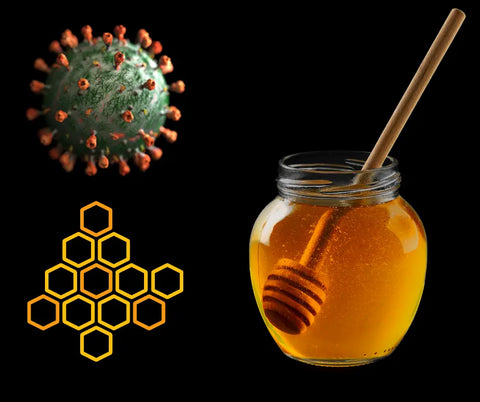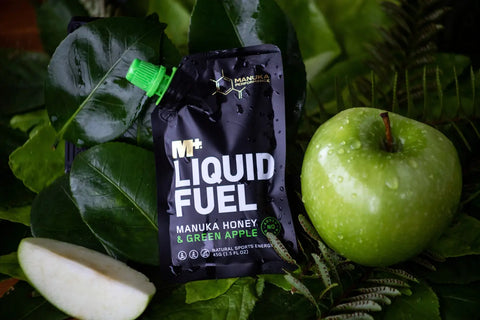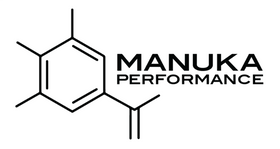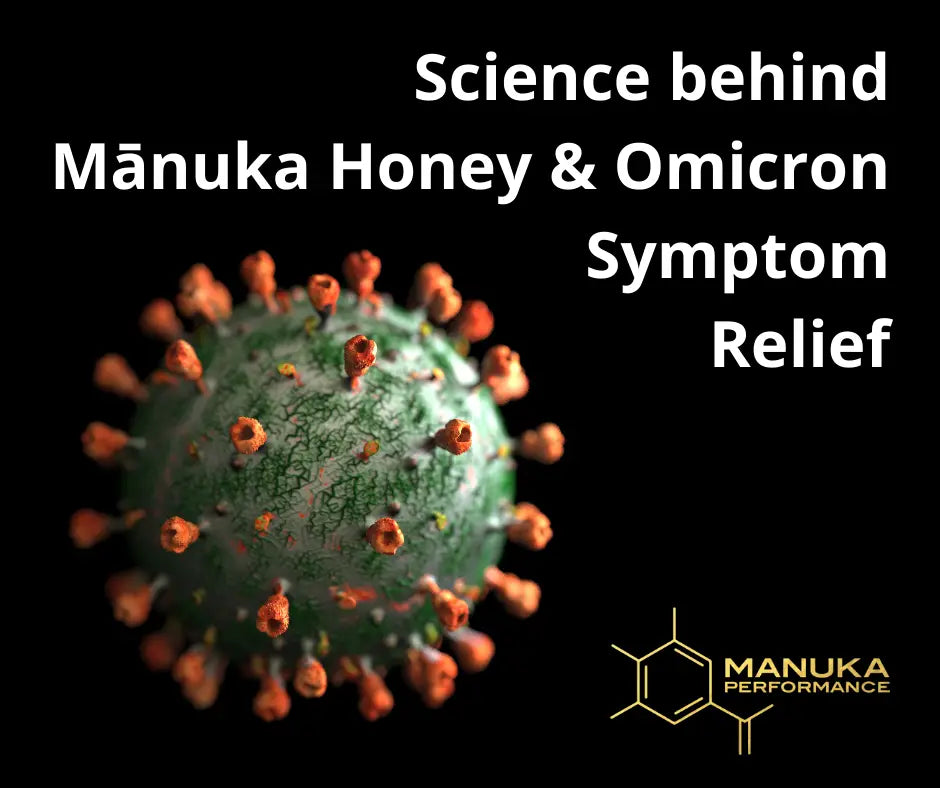Covid-19 and more recently the Omicron variant continues to cause major health concerns across the globe. In January 2020, the world experienced the emergence and rapid dispersion of this pathogen with clinical presentations resembling viral pneumonia.

All information in this article is obtained from, and referenced to the US National Library of Medicine research paper: https://www.ncbi.nlm.nih.gov/pmc/articles/PMC7832137/ Disclaimer: Due to regulatory law and advertising standards, Manuka Performance in no way makes any claim that our products or Manuka Honey in general is a cure or approved in any way for the treatment of Covid-19, Omicron or similar viruses.
Scientists are still seeking a successful vaccine to prevent infection or effective treatments once persons are infected. Apitherapy involves the use of products of honeybees, such as honey for prolonging, sustaining, and retaining health. Because the antiviral potential of honey was extensively proven in previous studies, such products are considered potential candidates for treatment of COVID-19 in humans.
The phenolic compounds in honey contribute to the many functional properties of honey and other bee products, including their antioxidant, antimicrobial, antiviral, anti-inflammatory, antifungal, wound healing, and cardioprotective activities.
Evidence suggests that honey might have beneficial effects on health including as antioxidants, anti-inflammatory, antibacterial, antidiabetic, respiratory, gastrointestinal, cardiovascular, and nervous system protective effects. In 2007, honey received approval from the Food and Drug Administration of the USA (FDA) for use as a topical treatment for wounds because of its potent antimicrobial properties.
Honey coats the inner lining of the throat and destroys potentially harmful microbes while simultaneously smoothing the throat. Also, honey is more potent for suppression of cough than dextromethorphan and diphenhydramine. Chronic bronchitis and bronchial asthma have been treated using honey, given orally during studies of animal models.
Honey's general antimicrobial activity and antiviral activity are likely due, in part, to hydrogen peroxide (H2O2) and the bee-derived antibacterial peptide defensin-1 (Def-1). Based on several in vivo and in vitro studies, other phytochemical non-peroxide components such as methylglyoxal (MGO) in some kinds of honey e.g. Manuka honey, exhibit similarly unusual enhanced antimicrobial activity. Like other respiratory viruses, including various strains of influenza, COVID-19 spreads through tiny droplets released from an infected person's nose and mouth during cough.
Manuka honey naturally contains hydrogen peroxide, meaning that routine daily honey intake might provide a protective measure because of the biocidal effect of hydrogen peroxide in honey could help to clean the throat from any virus particles. Manuka honey in particular is rich in phenolics and flavonoids, recently several studies that predict binding affinity of naturally occurring polyphenolic compounds to SARS-CoV-2 viral proteins are conducted in the context of in silico and molecular docking studies, most of these studies propose an expected medicinal value of polyphenols based on their predicted binding to SARS-CoV-2.

Honey has been recommended by the National Institute for Health and Care Excellence (NICE) and Public Health England (PHE) as a first line treatment for cough due to upper respiratory tract infection, which is the main well identified COVID-19 symptom.
Manuka honey in particular is surprisingly found to modulate the release of cytokines, chemokines and matrix-degrading enzymes that regulate inflammatory and immune responses. Currently drugs that quiet cytokine storms and soften the hyperinflammation are greatly considered to protect from acute respiratory distress syndrome (ARDS) the major cause of death due to serious COVID-19 infection.
Therefore, the studies recommend honey as a potential compatible antiseptic prophylaxis to help protect against the virus. Manuka Honey in particular might safely disinfect the throat and trap virus particles, beside a major advantage that it has no side effects and is of great nutritional value.
Furthermore, research into the active ingredients that impart antiviral potency to honey and greater understanding of how those chemicals cause their effects on viruses might help direct development of effective antiviral drugs with potentially fewer side effects.

